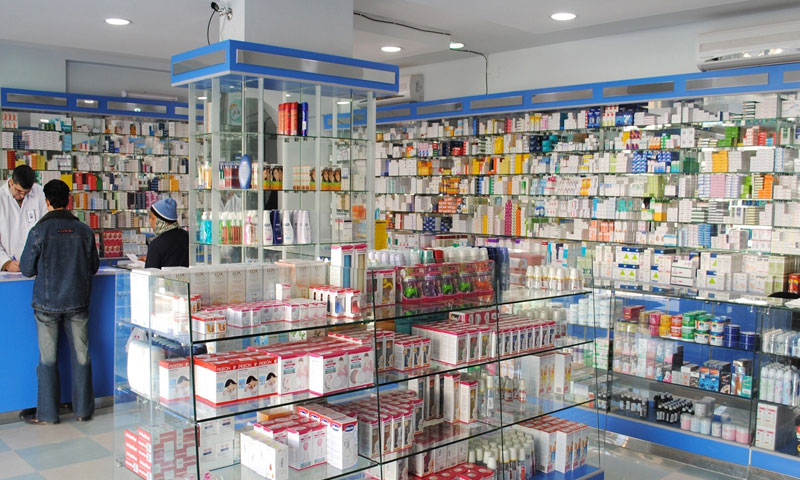In Daraa province, several pharmacies almost turned into shops, where neither the staffers’ pharmaceutical specialization nor the university degree is an issue of concern. What brings the province’s pharmacies together, however, is that all offer medications at various prices, just like food stores, given the absent governmental censorship.
According to the testimonies of Daraa’s residents and some of the doctors operating there, selling medicines in the past a few years has turned into a lucrative economic field for those running the pharmacies despite their not having a university degree.
This situation, a doctor from Daraa city told Enab Baladi, might lead to some harmful consequences to the patients.
Refusing to reveal his name for security concerns, the doctor pointed out that in terms of medicine, the person running the pharmacy not having a medicine degree puts patients at the risk of death or complications.
The doctor added that it is the pharmacist who must clarify the prescription and give instructions to how medicine must be taken, who, for his/her part, has studied pharmacology for five years at the university and gained sufficient practical skills in the following years, as to have a full grasp of medical combinations.
The doctor, an internist, believes that the phenomenon of lacking a degree and practical experience monitored among people operating pharmacies in Daraa has triggered doctors to provide patients with detailed instructions on how to take medications.
In certain cases, doctors are even asking patients to bring them the medicine to ensure that it is the one needed and explain both the side effects and how to use it.
The pharmacists’ role is as important as that of doctors, the internist added.
“Speaking of violations, pharmacists might sometimes prescribe medications without referring to a doctor, for patients seek them to save the expenses they are charged for doctor visits.”
Sami al-Hourani, a 35 years old man displaced from Syria’s east, narrated to Enab Baladi what happened with one of his close friends.
His friend, who suffers a chronic drug allergy, sought a pharmacist without visiting a doctor. Getting an injection into the muscle, his health deteriorated and was immediately rushed to the doctor’s clinic.
The doctor, Sami added, told his friend that he should have undergone a medical test before taking such medications. A thing that skipped the pharmacist’s attention.
Prices are moody
Persons selling medicines mostly do not commit themselves to the regular prices registered on the pillbox, for they erase the original prices and replace them with ones that achieve them additional revenues.
“Prices of drugs vary from one pharmacy to another. There is a huge discrepancy between the price registered on the pillbox and that the drug is sold for. The same medicine is sometimes sold for various prices by different pharmacies,” Abdulkareem Ahmad, a 40 years old resident of Muzayrib town, told Enab Baladi.
“Medicines are a necessity that one cannot give up on or even be late in purchasing, the reason why pharmacy owners exploit people’s need to buy drugs, boosting their prices compatible with the profits [they desire], given the evident absence of censorship on the part of the Daraa Healthcare Directorate.”
According to Ahmad al-Mufleh, a nurse from al-Jaidour, north-western rural Daraa, pharmacies have turned into commercial projects aiming at profits, for there is an overt breach of the medication pricing process.
As he put it, the pharmacies have changed into something like a food store but designated for medicines.
The “arbitrariness,” the nurse told Enab Baladi, reigning the pharmacies’ working methods, the almost nonexistent censorship and follow up on the part of the Healthcare Directorate and the owner’s desire to gain profits might urge the sellers to offer expired medicines.
He also referred to “ignorance,” resulting from the lack of medical experience and “drug fraud” as to realize the biggest margin of profits possible.
Since August 2018, several sectors in Daraa province have been suffering due to lacking censorship and security chaos, resultant of the ever-changing boundaries of field control map, when the Syrian regime regained control over the province from the factions, affiliated with the Free Syrian Army (FSA).
The regime is faced with various difficulties at imposing order on the vital services the area’s people need.

